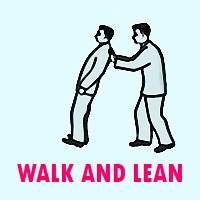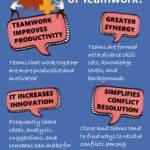
The Walk and Lean Exercise
Walk and Lean is a great exercise for building pre-existing trust and spotting skills, as well as reinforcing the importance of relationships.
Ask for a willing volunteer who feels confident in their spotting skills to be your demonstration partner. Explain as much to the group as your partner that you will soon start to walk aimlessly around a nominated space, and your partner’s job is to always position themselves directly behind you in the ‘spotter’s ready’ stance.
After 5 to 10 seconds has elapsed, stop and then slowly start to lean backwards. At this point, instruct your spotting partner to physically support your lean so that you do not collapse to the ground.
With your demonstration complete, ask your group to form pairs.
Instruct one person to commit to ‘spotting’ their partner’s movements at all times.
Instruct the ‘spotter’ to remain ready and behind their partner no matter where they move.
Without notice, invite the walker to stop walking and then lean backwards, on several occasions. Instruct the walker to only lean backwards from a stationary/stopped position.
Alert the walking/leaning partner to be prepared to support oneself at all times. Remind those who are leaning that they should try to stay in the lean as long as they can (or at least until they feel that they have to self-spot,) and for spotters to be very alert and ready.
After a minute or two, ask people to swap partners and repeat the exercise.
Moment of Reflection
- Describe your experience as a leaner?
- Describe your experience as a spotter?
- What did you learn as a spotter or leaner from this experience?
- On a scale of 1 to 5 (highest rating being 5) how well did you feel cared for?
- On a scale of 1 to 5 (highest rating being 5) how well did you care for yourself?
- What similarities and differences existed for you with each role?
- How do you typically care for others?
- How do you prefer to be cared for?
- What motivates and helps you to care for yourself?
The topics of this publication: teamwork, trust, integration, interactions, reflection, self, foster relationships


